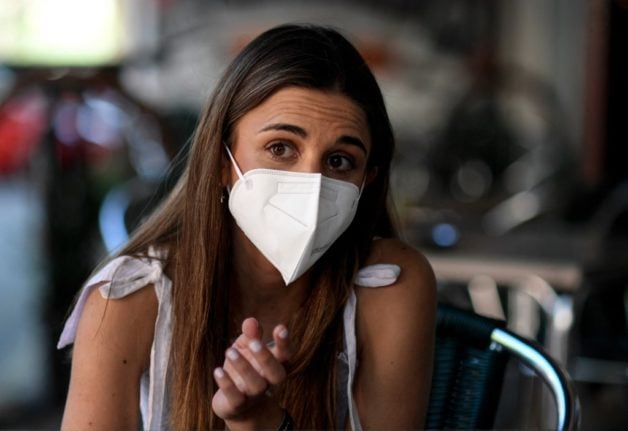The Labour Party-led coalition government has decided that the health situation allows for easing restrictions, even though that likely will mean higher levels of coronavirus spread in the population.
“Many of us will be infected,” said Prime Minister Jonas Gahr Støre during a press conference on Tuesday evening.
READ ALSO: Norway relaxes Covid-19 restrictions but keeps face mask rules
The Norwegian Public Health Institute (NIPH) estimates that between 3 and 4 million people could become infected with the Omicron variant before the summer, according to the Prime Minister. Norway has a total population of roughly 5,4 million people.
“We therefore maintain some measures to prevent too many people from becoming ill and away from work at the same time,” Støre said.
In addition to maintaining some rules, the government has eased the self-isolation rules in place so that fewer people will be prevented from going to work.
The new self-isolation rules, which came into effect at 11pm on February 1st, are laid out in a government press release.
Who has to self-isolate?
Only those who test positive for Covid-19 have to self-isolate. Previously, people living with someone infected by Covid-19 or who were defined as a close contact case also had to self-isolate, but this requirement has now been scrapped.
How long is the isolation period?
The total self-isolation period for Covid-infected people has been shortened from six to four days.
However, there is a requirement to having been fever-free for at least 24 hours, without taking paracetamol or other fever-reducing medicines, before breaking the quarantine period.
What about contact cases?
People living with someone who has tested positive for Covid-19 are recommended – but not required – to get tested every day for five days in a row. The same goes for contact cases with symptoms. Contact cases without symptoms are not recommended to get tested, but are asked to be aware of any symptoms that might develop.
Those who cannot avoid close contact with a Covid positive person during the isolation period are recommended to get tested every day during that period and then every day for five days, so nine days in total.
The government recommends self-testing at home over getting tested a public health station with an antigen or PCR test.
READ ALSO: Norwegian health authority changes guidelines for home Covid-19 tests
What are the rules in quarantine?
The rules of the actual quarantine remain unchanged. When self-isolating you are asked to stay at home and only go out for necessary errands that others cannot do for you. This means you can’t go to work and you need to avoid public transport.
You are also supposed to socially distance at home, stay in a separate room and use a different bathroom if possible. You are encouraged to frequently clean surfaces that are often touched.
Previously, people who were isolating due to close contact with a confirmed Covid case were allowed to leave their homes to walk outside, if they could do this at a distance from others. With contact cases no longer required to self-isolate, this provision becomes obsolete. People who have tested positive should not go outside if they can avoid it, and those rules haven’t changed.
Those who test positive for Covid-19 are also asked to register with the “smittestopp” tracing app.




 Please whitelist us to continue reading.
Please whitelist us to continue reading.
Member comments